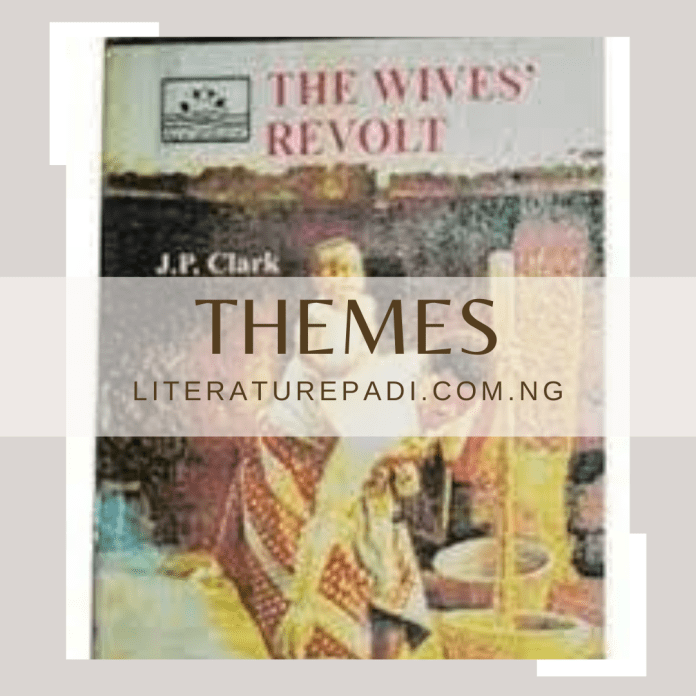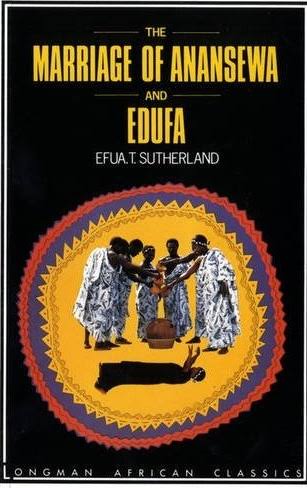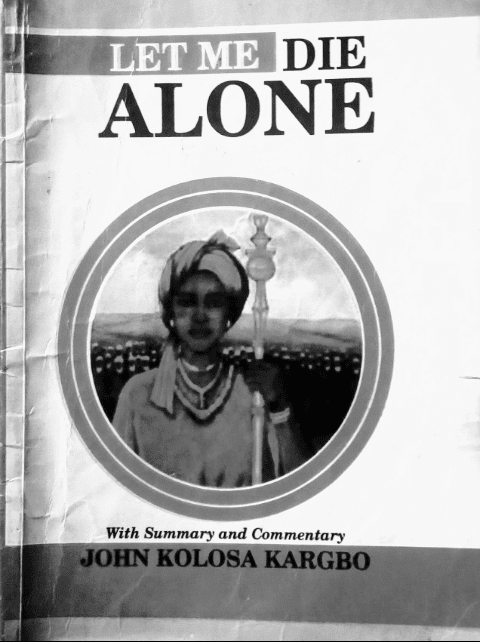John Pepper Clark’s play, The Wives’ Revolt, explores various themes that point to the societal dynamics and struggles for gender equality within the Nigerian society.
The prominent themes of patriarchal dominance, power struggle, gender inequality, and role reversal form the foundation of the play’s narrative.
Theme of Patriarchal Dominance
The theme of patriarchal dominance is a prominent theme in John Pepper Clark‘s The Wives’ Revolt. The playwright explores the patriarchal power structure that is deeply entrenched within the Nigerian society as portrayed in the play.
The male characters hold positions of authority and leadership within the community. As leaders of the community, they use their power to enforce their dominance over the women. They make decisions without consulting or considering the perspectives of women, exemplifying the patriarchal control that marginalizes and suppresses women’s voices.
The distribution of the money provided by the oil company is a significant example of patriarchal dominance. The men unilaterally decide on a sharing formula that favors themselves and the male elders, while giving a lesser portion to the women. This unequal distribution reinforces the idea of male entitlement and the power dynamics inherent in a patriarchal society.
The banning of goats by the men also reflects the patriarchal dominance in the play. The men make a law that prohibits the women from rearing goats, linking it to accusations of witchcraft. This decision is based on the false judgment of a few men who label their wives as witches.
Okoro, one of the male characters in the play, embodies patriarchal dominance in person. He consistently belittles and dismisses his wife, Koko, asserting his superiority in both words and actions. He devalues her efforts, finds fault in her cooking, and mocks her contributions. Okoro’s behaviour reflects the deeply ingrained patriarchal attitudes that men are superior and women should conform to traditional gender roles.
The women’s revolt against this dominance becomes a rallying cry for gender equality and the need to dismantle patriarchal structures.
Theme of Power Struggle
The theme of power struggle is central to The Wives’ Revolt. The play portrays the conflict and tension that arises between men and women in a certain oil-rich community in Nigeria as they contend for power and influence within their society.
The theme of power struggle is portrayed at the societal level where the men, who hold positions of leadership within the community, attempt to assert their superiority and dominance over the women. This is exemplified through their decision-making process regarding the distribution of money from the oil company which is unequally distributed. This unequal distribution sparks the resistance and revolt of the women, who argue for a more equitable sharing formula.
The power struggle is also evident within the dynamics of individual families. The relationship between Okoro and Koko serves as a microcosm of the larger conflict. Okoro represents the patriarchal figure who seeks to maintain control and dominance over his wife. He belittles Koko’s efforts, disrespects her, and deliberately flaunts his gender superiority. Koko’s participation in the revolt is tantamount to a challenge of the power dynamics of the patriarchal Erhuwaren community.
The theme of power struggle is also shown in how the society is designed to allow decisions made by a select group of men, disregarding the voices and concerns of women.
Related:
- Critical Analysis of John Pepper Clark’s “The Wives’ Revolt”
- Characterisation in “The Wives’ Revolt”
Theme of Gender Inequality
The theme of gender inequality is a central and pervasive element in The Wives’ Revolt. The women are fostered with domestic duties and child-rearing, while their male counterparts occupy positions of power and decision-making.
The sharing of oil money is one area where gender inequality is evident. The men in the play, who hold positions of authority, make decisions regarding the allocation of money and resources without consulting the women. As a result, the women receive a smaller share, perpetuating their economic dependence and reinforcing their marginalized status. This economic disparity further limits their opportunities for growth and self-determination.
The women’s inability to own property or exercise control over their own finances is another manifestation of gender inequality. Their decisions and actions are constantly scrutinized and controlled by men. This lack of control over their own lives and resources strips the women of their individuality and perpetuates their subordination.
The play also explores the theme of gender inequality through the portrayal of oppressive cultural practices and beliefs. The ban on goats, justified by accusing women of witchcraft, is an example of the unfair treatment and scapegoating of women. These accusations are based on gender stereotypes and fear of female empowerment, further perpetuating the subjugation of women and restricting their freedom.
Okoro’s belittling and dismissal of his wife, Koko, as less capable and intelligent reflects the deeply ingrained gender biases and the devaluation of women’s abilities and intellect.
The women’s revolt becomes a powerful symbol of resistance against gender discrimination and the quest for equality, empowering them to challenge societal norms and demand their rights.
Theme of Role Reversal
Role reversal is yet another prominent theme in The Wives’ Revolt. The play portrays a community where traditional gender roles are challenged, and women assert themselves in a manner that disrupts the established power dynamics.
The role reversal theme is evident in the actions and reactions of the characters. Initially, the men hold positions of authority and make decisions that favour their own interests. However, the women challenge this imbalance by refusing to accept the unjust distribution of resources. They argue that the sharing formula is biased, as the men benefit from the money in multiple ways while the women are left with a smaller portion.
As the women rebel against the status quo, they leave their husbands and take on roles traditionally associated with men. The men are left to struggle with domestic duties and childcare, which were typically the responsibilities of women. This reversal of roles emphasises the women’s determination to assert their rights.
 WHATSAPP: Click HERE to join the new Literature PADI WhatsApp group to receive latest updates on your phone and for further literary discussions!
WHATSAPP: Click HERE to join the new Literature PADI WhatsApp group to receive latest updates on your phone and for further literary discussions!










